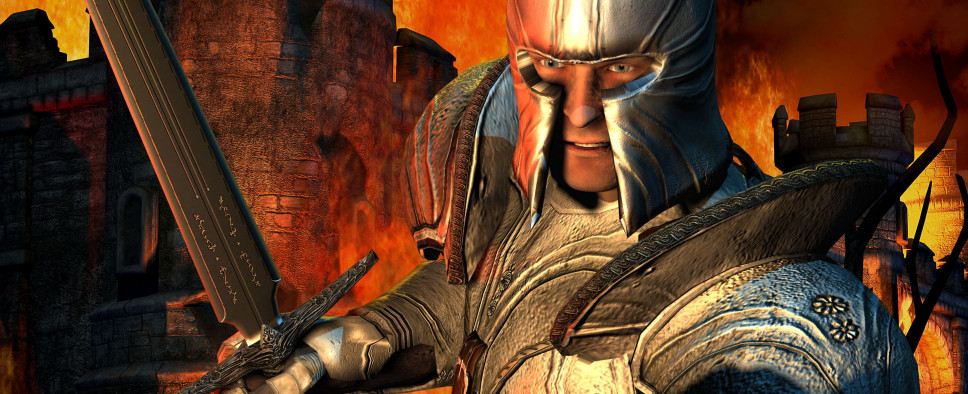The Elder Scrolls IV: Oblivion Retrospective
-
Category: News ArchiveHits: 3991

With Morrowind and Skyrim always getting their fair share attention and/or nostalgia whenever Bethesda's The Elder Scrolls series is brought up, this Eurogamer article attempts to paint the fourth installment in The Elder Scrolls series, Oblivion, in a positive light. It names Oblivion's Dark Brotherhood quests, worldbuilding, and its popularity on consoles as its most notable qualities, while casually name-dropping an excessive amount of famous works of fiction. It's an odd article but if you've ever felt nostalgic for the armor-clad black sheep of Bethesda's flagship series, you might find it enjoyable. An excerpt:
Alright, every NPC in Oblivion looks like a sentient yam, but comparing like for like in the narrative department leaves its sequel looking like a whole sack of manky root veg - as slick as the gameplay and visual updates were in Skyrim, its Dark Brotherhood quest line was a steaming load of Direwolf's kidneys, while Oblivion's take on Assassin's Goth still stands as Bethesda's greatest ever storytelling moment, leading the player up several garden paths and pulling in influences as diverse as Agatha Christie's 'And Then There Were None' and Alfred Hitchcock's 'Psycho'. The twists! The turns!
The best bit of Skyrim's equivalent is when you unlock a ghost version of Lucien Lachance, Oblivion's tragically betrayed stabber-in-chief who, despite having been dead for 200 years by the time you show up there, is one of Skyrim's more memorable characters.
Reliving the Dark Brotherhood missions on their own would be worth the price of readmission if Bethesda ever decided to remaster them. But Oblivion isn't just a murder simulator (although it is a very good murder simulator, murder fans) and despite appearances it isn't a poundland Lord of the Rings either - although many have dismissed it as such.
One only needs to scratch lightly at Oblivion's Tolkienesque veneer to reveal a gleefully dark, macabre comedy of a world which is as comfortable invoking Lovecraft as it is making referential gags about Under Siege. Probably quite intentionally, there are two distinct, contrasting versions of Cyrodiil that are tangled together - the postcard version where the nobles live, and the depraved cesspool of iniquity occupied by everyone else, which the nobles like to piss into when nobody's looking. When taken as a satire of, well, any society you can think of, Oblivion's genius fills infinite dimensions. It likes to pretend that it's all about the straightforward Good vs Evil patter, but only to keep the dafties on-side.
Like every Bethesda RPG, many of its best bits are found off-mission, but not necessarily off the beaten path. Even the most casual exploration of Cyrodiil's big cities is liable to embroil a wandering adventurer in tales of Lovecraftian madness, Kafkaesque horror, Welshian drug abuse, and several other spurious and overused adjectives. There's even a fair bit of implied Secret Shagging. All the Good Stuff. Following the substantial main and guild quests will take you ages and won't even reveal all of the locations - and hunting for the abundant secrets that Cyrodiil has to offer will keep you enthralled for an obscene amount of time.
It's a great package, accessible to a fault, eminently playable in either bite-sized chunks or substantial multi-hour portions, and surely so much further back in our memories than Skyrim that it is in more urgent need of a redux than a game which is barely six years old and on its third major re-release in twelve months. It also runs better on low-power devices, on account of its age.

